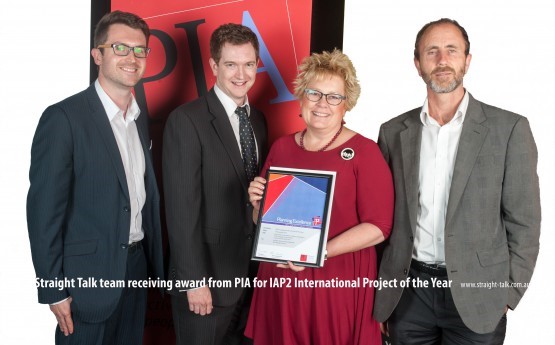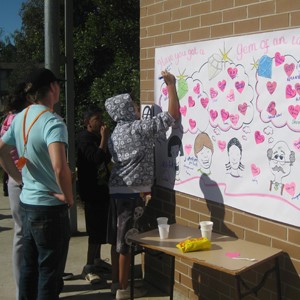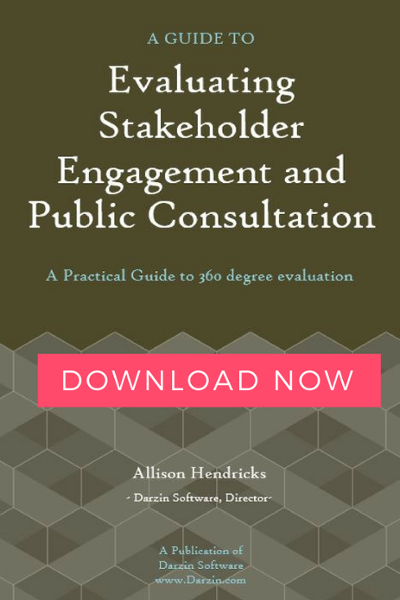IAP2 International Project of the Year


Airds Bradbury Renewal Project
Airds Bradbury is a public housing estate in south west Sydney recognised as a seriously disadvantaged area. Weekly household incomes in the area are less than the half the Sydney average; unemployment rates are five times the Sydney average; nearly 70% of the population have no formal qualifications and 40% of households are single parent families. There is commitment to redress the physical and social imbalance in the area. The Airds Bradbury Renewal Project (the project) aims to turn Airds Bradbury into a place of opportunity with a mixed and integrated community and a sustainable future. A new master plan is being developed to shape improvements to physical infrastructure including housing, streets, open space and the town centre as part of a comprehensive community renewal process.
Airds Bradbury Renewal Project won IAP2 International Project of the Year award for their grassroot community engagement approach and for using innovative engagement practices.


Good Practice Community Engagement
This renewal process is being underpinned by meaningful community engagement. An inherent challenge in working with such disadvantaged communities is the high level of disengagement from participating in community life. For a number of reasons, this was the case in Airds Bradbury. Residents have a deep distrust of government which has arisen after years of broken promises and negative experiences of regulatory institutions.
A draft master plan for part of the area was prepared in 2002 with limited consultation, was never adopted and improvements were not delivered. Consequently, residents were dubious that the current master planning process would bring about positive change and were unmotivated to step forward and participate. Significant physical and social barriers exist in Airds Bradbury which has comparatively poor facilities and services as a result of poor planning and underinvestment. Lack of basic amenities and access to services limit opportunities for residents to meet and interact which generates feelings of isolation and exclusion. Furthermore, residents have increased stress levels produced by higher levels of crime, violence and antisocial behaviour which further inhibit their willingness to participate in community life.
There is an entrenched ‘victim mentality’ in the area produced by low levels of control residents feel they have over their lives. Consequently, there is a culture of blaming others, finding excuses and being pessimistic about the future. The majority of residents feel powerless to influence change, which limits their motivation to take responsibility for their circumstances or contribute to community life. The role of public participation Tackling social disadvantage requires more than fixing up or selling off old houses.
Successful community renewal brings residents on a transformational journey and builds connectedness in the community, giving residents hope for the future and building momentum for change. Renewal cannot be a top down process. To generate sustainable outcomes the process has to be owned and driven by residents to ensure local issues are priorities and dealt with in a relevant, creative, and effective way to directly benefit the community. For this reason, community renewal in Airds Bradbury had to be a resident ‘owned’ process. Accordingly, the engagement process was intrinsic to the renewal project and was designed and delivered to strengthen the community’s ability to take action that leads to positive change at the local level. Through participation, residents were empowered to take an active role in the delivery of services and management of change.


Community engagement activities at Airds Bradbury Renewal Project
Innovative Engagement Practices
The Straight Talk and Housing NSW team employed a number of innovative engagement practices to deliver this successful project. They also used Darzin to manage and analyse stakeholder data and report on results.
- A large scale community celebration of people and place, modelled on the ‘SpeakOut’ approach, involved nearly 1,500 residents with food, entertainment and 17 consultative activities to gather resident ideas and aspirations about the future of the area and introduce the master planning process.
- Design OutLOUD – A participatory design workshop, modelled on an ‘enquiry by design’ approach involved 300 residents over three days to identify and test development scenarios for the master plan
- Resident visioning workshop – Creative, participatory workshop involving 60 residents who formally presented their ideas and vision for the future of the area to inform the master planning process
Darzin’s flexibility to record and integrate data from all different communication channels, as well as its qualitative analysis function is critical in managing a community engagement program like this. Being able to run qualitative analysis from ‘text-rich’ activities such as ideas trees, visioning workshops and more helped make sense of that data. Reports were used to track how participants have influenced project decisions and help shaped parameters for the Master Plan. The community representative group was regularly updated on how and why decisions were made. This provided an important check and balance mechanism, ensuring the project team was kept accountable for outcomes. Broad-based reporting back included regular distribution of newsletters to keep residents informed about the renewal process.
Project Results
The project led to an unprecedented level of ‘engagement’, as distinct from ‘consultation’, with residents, which has built trust, goodwill and respect. The project outcomes have been influenced in a range of ways as a result of public participation:
- Several well resolved concept designs were developed at Design OutLOUD and are now being refined into the master plan
- Funding commitment and work started on a number of resident-led initiatives to improve the area and provide increased opportunities for residents. For example monthly markets, weekly fruit and vegetable co-op, graffiti removal campaign, park clean ups, landscaping and seniors housing developments have been established or are underway.
While the master plan has not yet been developed and adopted, the preferred concept design is based directly on the outputs of the iterative planning process and is broadly supported by residents and key stakeholders.
For more information on this innovative award winning project please contact Lucy Cole-Edelstein at Straight Talk
Want to see how your stakeholder engagement process performs? Check out our guide to evaluatiing stakeholder enagagement and public consultation processes.


